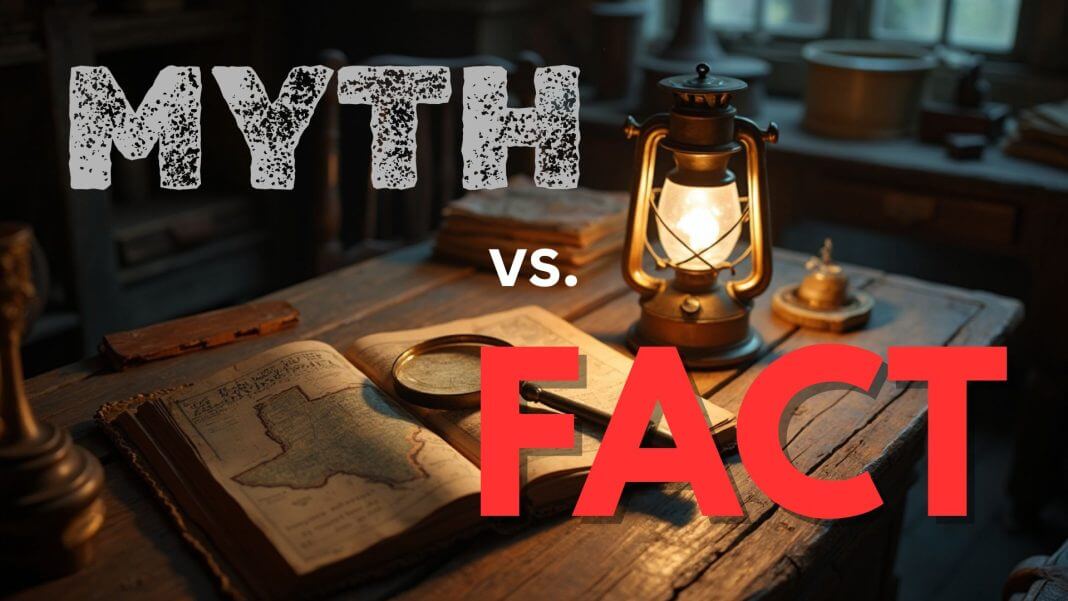The objection sounds authoritative: “The Civil War established that states cannot unilaterally secede.” Critics wave this claim like a legal shield, hoping to end any discussion of Texas independence before it begins. They point to the Supreme Court case Texas v. White as definitive proof that TEXIT is impossible.
This argument is one of the most persistent myths used to condition Texans to believe they have no choice but to accept federal control. The reality? The Civil War settled nothing legally about secession, and the Supreme Court never banned it.
The Fear Behind the Myth
When opponents cite the Civil War as legal precedent, they’re banking on a simple psychological trick: if something required a war to resolve, it must be illegal to attempt again. This conditioning runs deep. Many Texans have been taught that the Civil War “proved” secession was unconstitutional and that any attempt at independence would be futile or violent.
The fear is understandable but factually wrong. As Texas Nationalist Movement President Daniel Miller explains, “Force does not settle legal matters.” A military victory doesn’t create constitutional law any more than a bank robbery creates property rights.
What Texas v. White Actually Says
Here’s what 99% of people citing Texas v. White don’t know: they’ve never actually read the decision. Chief Justice Salmon Chase did claim the Union was “indissoluble,” but he immediately contradicted himself by describing two specific methods through which states could withdraw: “revolution” or “consent of the states.”
More importantly, Chase based his entire argument on the Preamble to the Constitution—not on any actual constitutional provision. He cited the phrase “to form a more perfect Union” as evidence of permanence, along with references to the defunct Articles of Confederation. The decision contains no constitutional text prohibiting secession because none exists.
This legal foundation crumbled in 1905 when the Supreme Court ruled in Jacobson v. Massachusetts that no powers can be granted to the federal government through the Preamble unless explicitly stated in the Constitution itself. Since Texas v. White relied entirely on Preamble language without citing any constitutional prohibition, its authority has been effectively neutralized.
The Constitution’s Silence Speaks Volumes
The U.S. Constitution explicitly enumerates federal powers in Article I, Section 8. Everything else falls under the Tenth Amendment as powers “reserved to the States respectively, or to the people.” The Constitution contains no clause prohibiting withdrawal from the Union, making secession a reserved state power.
Meanwhile, Article I, Section 2 of the Texas Constitution—adopted after the Civil War—explicitly guarantees Texans “the inalienable right to alter, reform or abolish their government in such manner as they may think expedient.” This language was included deliberately, with full knowledge of the Civil War’s outcome.
Global Precedents Prove Peaceful Separation Works
The modern world offers abundant examples of peaceful, legal separation from political unions. Brexit demonstrated that the United Kingdom could withdraw from the European Union through referendum, negotiation, and international recognition—despite critics claiming it would “wreck the system.”
The “Velvet Divorce” between Slovakia and the Czech Republic in 1993 split Czechoslovakia into two nations without war, bloodshed, or outside military intervention. Estonia, Latvia, and Lithuania reasserted independence from the USSR despite Moscow’s claims that secession was illegal. International law recognized their right to self-determination.
Most recently, South Sudan peacefully seceded from Sudan in 2011 through international treaties and became a UN member. These examples prove that political unions can be dissolved legally and peacefully when the will exists.
International Law Supports Self-Determination
The United States has ratified UN treaties recognizing self-determination as a fundamental right. The International Court of Justice’s 2010 Kosovo opinion explicitly stated that international law does not prohibit declarations of independence. This binding international framework supersedes domestic precedents that conflict with recognized human rights.
Texas has multiple legal pathways to independence: constitutional amendment (federal or state), referendums with post-secession bilateral treaties, and international recognition through UN admission. The TEXIT process outlined by the Texas Nationalist Movement follows established democratic procedures used successfully worldwide.
The Real Legal Question
The question isn’t whether Texas can pursue independence—the Constitution’s silence and international law confirm this right. The question is whether Texans have the will to exercise it. Legal scholars increasingly recognize secession’s constitutional legitimacy, while historical precedents demonstrate its practical feasibility.
The Civil War myth persists because it serves the federal establishment’s interests. By conditioning Texans to believe independence is impossible, they discourage examination of the actual legal and constitutional framework. This psychological barrier—not any legal prohibition—remains the primary obstacle to Texas self-determination.
Texas Chooses Its Own Path
The Civil War established military might, not legal precedent. Texas v. White created confusion, not constitutional law. The real legal foundation for Texas independence rests on the Constitution’s enumerated powers, the Tenth Amendment’s reserved rights, the Texas Constitution’s explicit guarantee of self-government, and international law’s recognition of self-determination.
Texans need not ask permission to exercise rights they never surrendered. The path to independence remains open, legal, and precedented by peaceful separations worldwide. The only question is whether Texas will choose to walk it.


